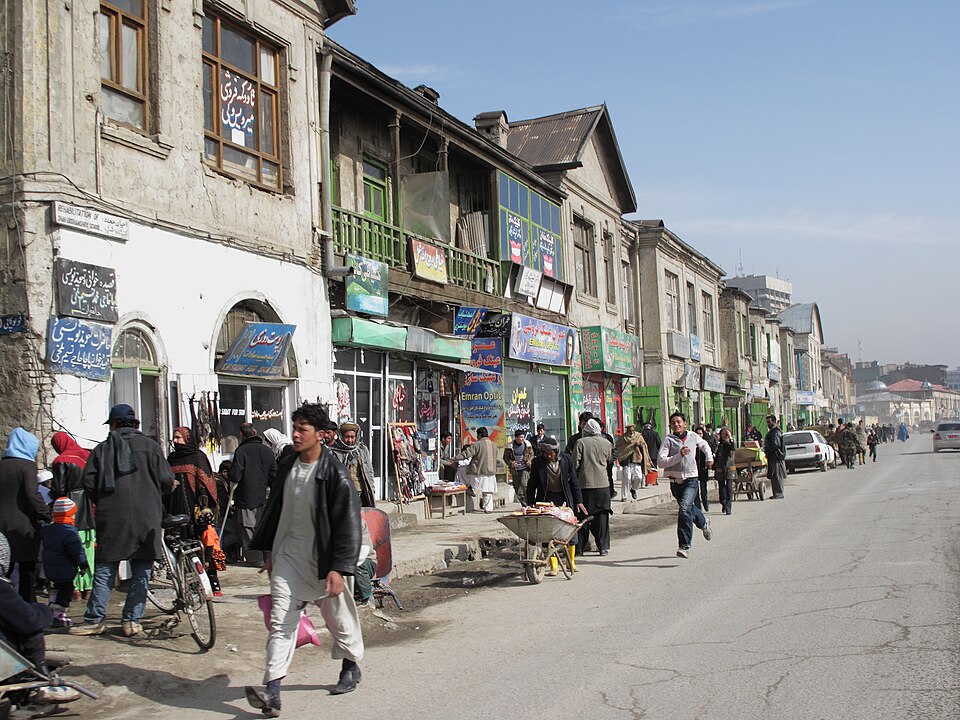
Thousands of Afghans have been quietly relocated to the UK under a secretive government scheme triggered by a serious data breach, previously hidden from the public.
In February 2022, the personal details of nearly 19,000 Afghan nationals—many of whom had applied to come to the UK after the Taliban's return to power—were mistakenly leaked. The UK government only discovered the breach in August 2023, when parts of the leaked data surfaced on Facebook.
In response, a new resettlement program was quietly established nine months later, resulting in 4,500 Afghans being brought to the UK. This operation remained classified under a super-injunction that not only prevented media coverage but also barred disclosure of the injunction itself.
The existence of the breach and the relocation effort only became public this week after a High Court judge lifted the gag order. The leaked information included names, contact details, and family connections—potentially putting thousands at risk from Taliban retribution.
Despite the gravity of the incident, the government has not confirmed whether the official responsible—a Ministry of Defence (MoD) employee—faced any disciplinary action.
Key Developments Revealed:
- Around 600 Afghan soldiers and 1,800 family members listed in the leak remain in Afghanistan.
- The relocation scheme, named the Afghan Relocation Route, is now being wound down, though current offers will still be honored.
- The initiative has cost £400 million so far, with an additional £400-450 million expected in the future.
- Affected individuals were only notified this week, with an MoD email advising them to remain vigilant and protect their digital privacy.
Government response and apologies
Defence Secretary John Healey apologized in Parliament, calling the leak a “serious departmental error” caused by a spreadsheet being sent outside secure government systems. While he acknowledged the breach as part of a wider pattern of data mishandling during the Afghan evacuation, the Metropolitan Police opted not to investigate.
Conservative minister Kemi Badenoch also issued an apology, calling the mistake “terrible” and emphasizing that it should never have occurred.
Legal and security fallout
A 2024 High Court judgment by Mr Justice Chamberlain criticized the sweeping secrecy, noting the gagging order created a “scrutiny vacuum” that undermined democratic accountability. He also expressed concern that Taliban members could have accessed the leaked data through social media.
Initial fears suggested up to 100,000 people might be at risk due to the leak. However, an MoD review concluded it was “highly unlikely” anyone was targeted solely based on the breach, which may not have spread as widely as originally feared.
Still, the MoD has not disclosed whether anyone was harmed as a result.
The review did praise the secret resettlement scheme as a significant response, despite the limitations of the threat it addressed.
A troubled history
The data leak dates back to the chaotic withdrawal of US forces from Afghanistan in August 2021, which enabled the Taliban's swift return to power. The leak affected applicants to the Afghan Relocations and Assistance Policy (ARAP), a UK scheme designed to help Afghan allies escape Taliban persecution.
The UK’s wider evacuation effort has already come under fire, with a 2022 Foreign Affairs Committee report branding it a “disaster” and a “betrayal.”
When media outlets became aware of the new relocation plan in 2023, then-Defence Secretary Ben Wallace personally requested the super-injunction to give the government time to protect affected individuals. The order was extended in November 2023, amid fears that Taliban forces remained unaware of the breach.
Mr Justice Chamberlain eventually lifted the injunction, stating it was unlikely that confirming the leak’s existence would materially increase the risks to those named, given the Taliban likely already had access to the information.
Reactions and consequences
Shadow Defence Secretary James Cartlidge condemned the leak as a major failure of protocol. Erin Alcock, a lawyer at Leigh Day representing hundreds of Afghan applicants, called it a "catastrophic failure."
Separately, the government recently confirmed it had begun offering compensation to those affected by another unrelated Afghan data breach.
This unprecedented breach—and the secretive resettlement it prompted—raises enduring questions about data security, government transparency, and the treatment of Afghan allies in the aftermath of the West’s withdrawal from Afghanistan. Photo by Christopher Killalea, Wikimedia commons.



































